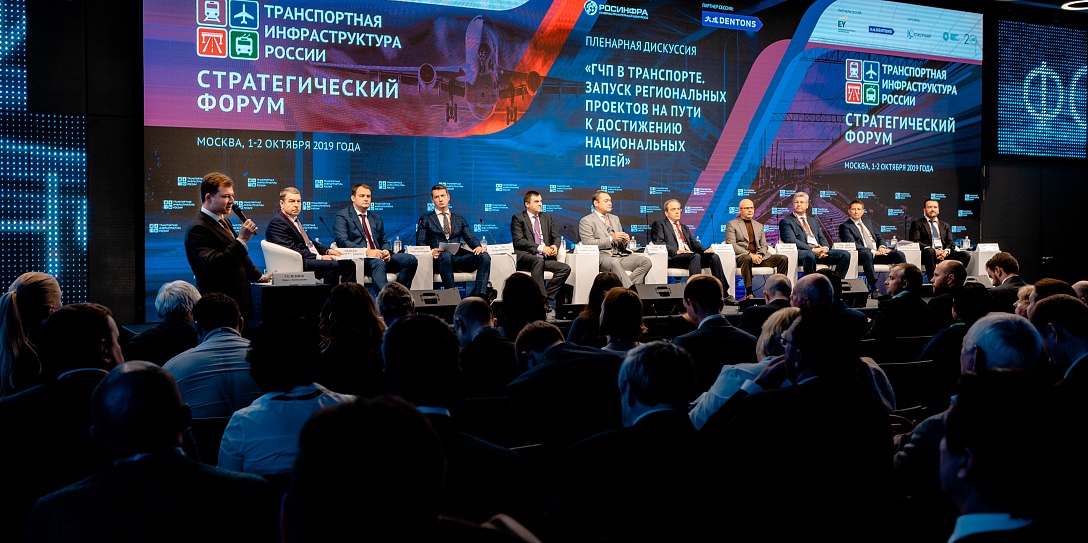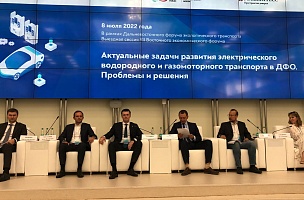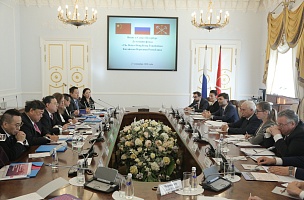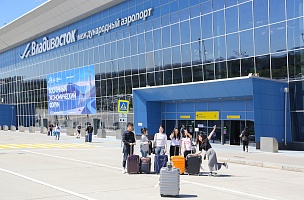The 5th Transport Infrastructure of Russia Strategic Forum was held in Moscow on 1–2 October as part of a series of events under the auspices of the ROSINFRA Infrastructure Congress. The event was organized by the PPP Development Center and the Roscongress Foundation.
The Forum kicked off with the signing of a
concession agreement between Russian Railways and the government of the Samara
Region, which was attended by First Deputy Minister of Transport Innokenty
Alafinov, Russian Railways CEO Oleg Belozerov, and Samara Region Governor
Dmitry Azarov. The agreement provides for the construction of railway infrastructure
to support the activities of the Tolyatti Special Economic Zone. Total
investment in the project will amount to RUB 0.9 billion.
«Public-private partnership projects play an
important role in the Transport Strategy of the Russian Federation for the period
until 2030. PPP instruments in transport are economic drivers of the industry
today and can significantly accelerate the implementation of infrastructure
projects», Advisor to the Russian President Anton Kobyakov said.
Participants in the Forum’s plenary session
discussed the current status of the backbone plan for the industry and
approaches to implementing the projects included in the plan as well as
regional PPP projects that are being implemented outside the plan. The moderator
of the session, Pavel Seleznev, Chairman of the Board of the PPP Development Center
and Chairman of the Board of Directors of Avtodor-Invest, set the tone for the
discussion as he outlined the main indicators of the PPP market in the
transport sector. According to the ROSINFRA
platform, 144 PPP transport projects are being implemented in Russia for which
RUB 2.3 trillion have been contracted, including private investments of RUB 1.55
trillion. Concession agreements are the most common mechanism, with 64 projects
being implemented with total investment of RUB 1.27 trillion. «And we are constantly
hearing about new plans and initiatives in the regions. This suggests that many
transport projects are being implemented in Russia using PPPs even without a
backbone plan», Seleznev said.
Alafinov also noted that the backbone plan cannot cover all the infrastructure needs. Regional projects must be developed independently of the plan and this requires various tools, he said. At the same time, people should look at the quality and not the quantity of projects since many projects only exist on paper, he said. Avtoban Road Construction Company CEO Alexey Andreyev noted that there are high expectations for new projects and mentioned the construction of sections of the Europe—Western China international transport corridor. He believes that the project needs additional expertise and the involvement of relevant companies in the discussions concerning the project because otherwise decisions may be made that will not be interesting to investors and the actual participants. For his part, Alafinov assured him that additional discussions and adjustments were planned. VEB.RF Deputy Chairman Yury Korsun noted that a comprehensive plan is the right initiative and has a clear structure unlike other national projects. PPP is the best approach to developing infrastructure within the framework of this plan, he said. «It’s important that we not forget that the major projects of the plan should not obscure the regional agenda», Korsun added. In general, the market players taking part in the discussion agreed that the number of PPP projects implemented as part of the backbone plan will increase next year after some adjustments.
In addition, the Forum featured industry-specific sessions on roads, railways, public transport, and digitalization. The session participants discussed ways to attract private investors, the structuring and implementation of PPP projects, the return on investment for investors, and the socioeconomic effects for the regions. The ROSINFRA Platform also held a presentation of its services that may be useful to transport infrastructure market players. On the second day, the PPP Institute held an educational programme on the PWC platform dedicated to the specific aspects of how to prepare for and implement PPP projects in the transport sector.
The Forum events were attended by more than 300
people, which included representatives of transport-related federal and
regional departments, heads of key infrastructure and construction companies in
the transport sector, bankers, private investors, experts, and journalists. The
official partner of the Forum was InfraONE, the business partner was VTB
Capital, and the session partners were EY and Dentons.






